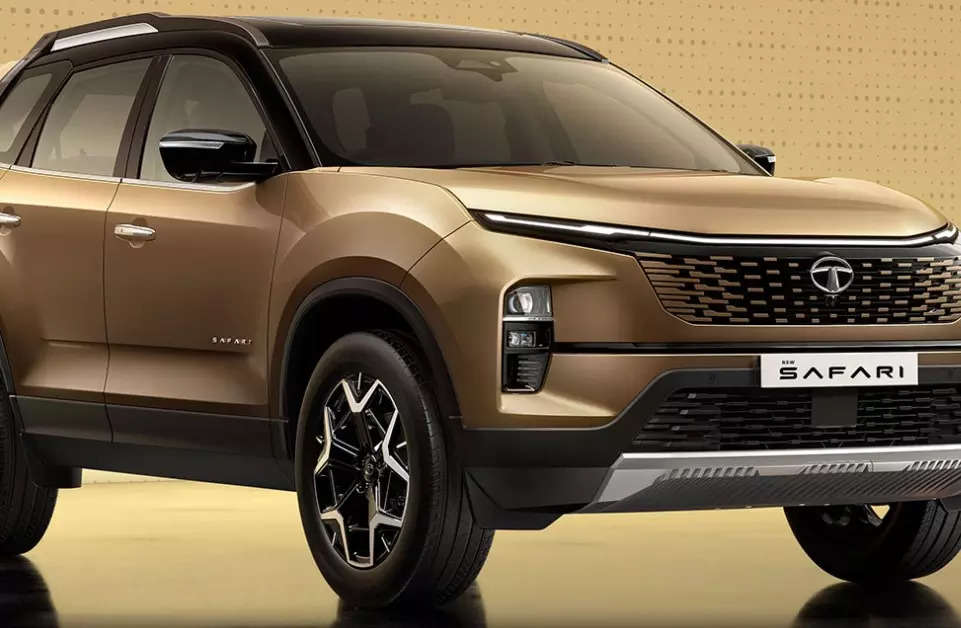The exterior of both the Safari and Harrier has been given a makeover. They now sport distinct grille designs, stylish split headlamps, and LED daytime running lights. The back end features full-width LED tail lights, a new bumper, and a skid plate. These SUVs also come with new alloy wheels, with the Harrier having wheels up to 18 inches and the Safari having wheels up to 19 inches.
Inside the cabin, both the Harrier and Safari have received upgrades. There’s a new four-spoke steering wheel with an illuminated logo, a large 12.3-inch touchscreen for infotainment, a 10.25-inch digital display for the driver, a touch-controlled climate panel, and ambient lighting along the dashboard. They offer dual-zone climate control, a gesture-controlled tailgate, wireless phone charging, adjustable and ventilated front seats (the Safari’s second row is also ventilated for the six-seater version), a panoramic sunroof, cruise control, advanced driver assistance systems, multiple airbags, a 360-degree camera, and more.
Both SUVs will have new electric power steering for easier and lighter steering. However, there haven’t been any changes to the engine. They will continue to use the same 2.0-liter diesel engine that produces 168 horsepower and 350 Newton-meters of torque, with power transmitted through a 6-speed manual transmission or an optional 6-speed automatic.
The new Harrier will have features such as ADAS with Adaptive Cruise Control, 7 Air Bags, Smart E- Shifter and Paddle Shifters and Dual Zone Fully Automatic Temperature Control, amongst others.


